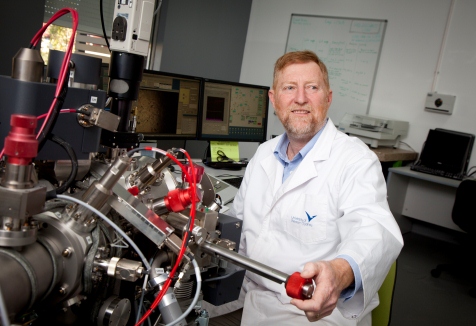Research reaching new heights

UWS research teams can take pride in the knowledge that 70 per cent of its research has been rated at world standard or better in the 2012 Excellence in Research for Australia (ERA) Institution Report. This is a fantastic result that shows the University’s improved research performance since the last ERA results in 2010, doubling the number of “above world standard” ratings.
The ERA assessment is undertaken by the Australian Research Council and evaluates the research conducted by Australian universities against that conducted by other bodies around the world. The results are found by committees of experienced and internationally recognised experts who review the research.
Notably, two of the University’s research Centres, the Hawkesbury Institute for the Environment(opens in a new window) (HIE) and the Centre for Complementary Medicine Research (CompleMED) received a score of 5 in multiple fields of research – the highest rating possible – which indicates the research conducted is “well above world standard”.
HIE focuses on research in soil biology and genomics; plants, animals and interactions; and ecosystem function and integration, in particular aiming to find ways for humans to adapt to the change in climate conditions. The Institute’s facilities are allowing scientists to create climatic conditions of the future, including hotter temperatures and different rainfall patterns, and study the effects these have on the environment.
“Incredibly hard work on the part of the Institute’s researchers was the major contributor to the success of the ERA,” says Jann Conroy, Associate Director of Research at HIE. “Provision of world-class research facilities with funding from the Federal Government’s Education Investment Fund and UWS was also important to our success.”
Jann says the rankings of 4 and 5 confirm the Institute as one of the premier research organisations investigating the consequences of climate and land-use change on natural and managed ecosystems.
At CompleMED, the research focus is on the efficacy, safety and use of complementary medicine, and the Centre is recognised as leading traditional Chinese medicine research in Australia.
“A mix of things contributed to CompleMED’s ERA rating of 5, including competing well nationally and internationally with a calendar of researchers who have the capacity to work well as a team,” says Alan Bensoussan, Director of CompleMED. “We also work well with external partners and collaborators and there’s a real vision and persistence in the Centre – we have a sense of where we want to take the evidence and science, which helps us stay focused.”
Alan says the infrastructure and support from UWS have been key to the Centre’s continued success. “The University’s strategy and support of key areas have been successful, which actually help us develop research programs and infrastructure that are well connected,” explains Alan.
Alan feels the rating of 5 will continue to attract and retain higher-degree researchers. “It will have a positive impact on our internationally competitive grants,” he says. “It also sends a signal to the community – both within complementary medicine and the broader health industry – that our Centre is the nation’s leader in this area. It will be a drawcard that will attract researchers to work with us.”
Many of UWS’s research areas – from Schools to Centres and Institutes – were found to be performing at above world standard. In fact, in ERA 1 in 2010, UWS had 18 of its four-digit fields of research assessed at world standard or above and, in ERA 2, this has doubled to 36.
Congratulations to all who contributed to these fantastic results.
Mobile options:

